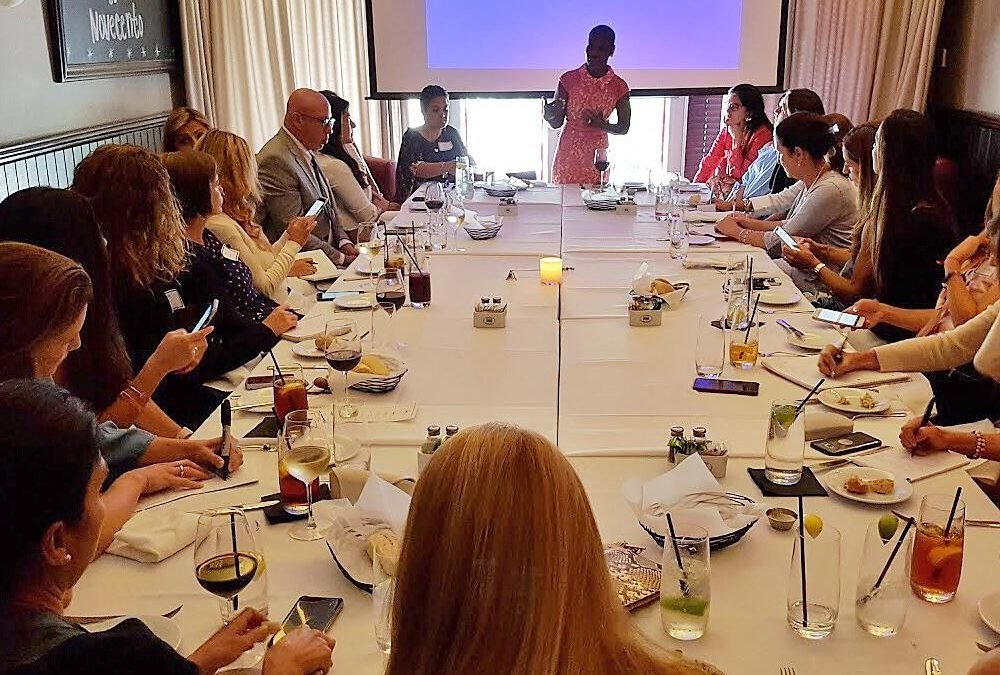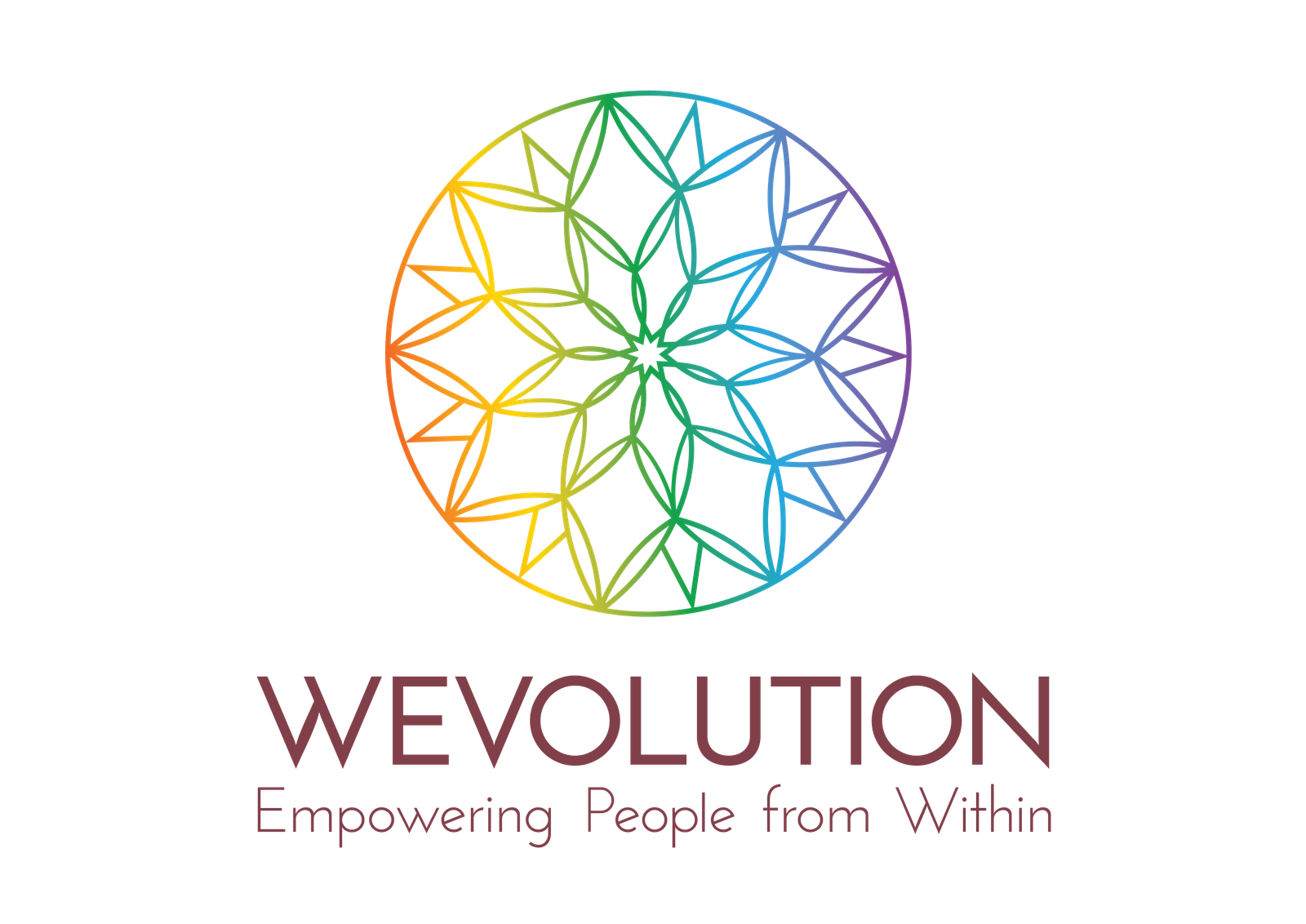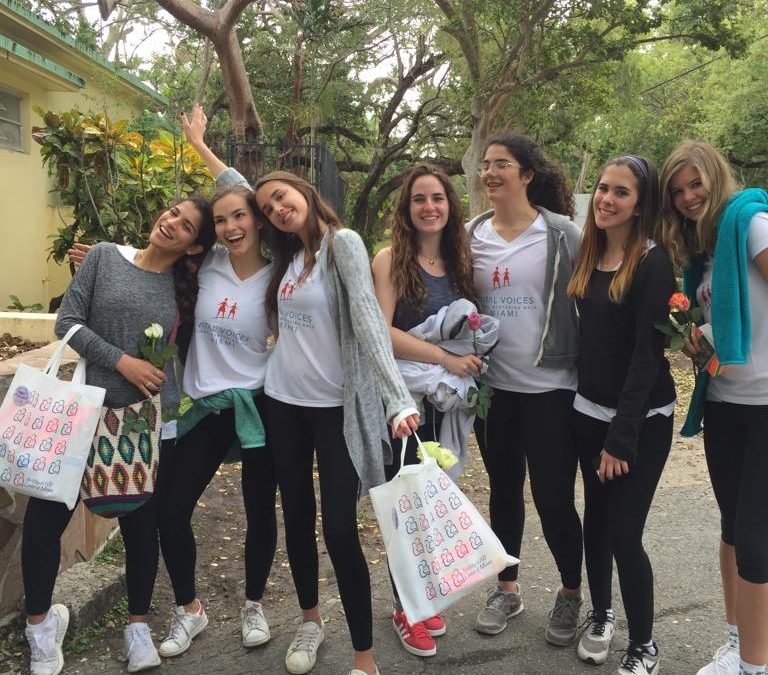
The Combatting Power of Mentoring: Fighting Invisible Barriers at Work
Lidia Heller, often in charge of training sessions that Vital Voices offers, proposes forging relationships between mentors and mentees, and she introduces the gender perspective. According to her, the process requires the participants to agree on the mentoring goals and to create a bond of trust. This will help unlock the creative potential for strategic decision-making and also help acquire new skills for analysis, negotiation and initiative. This would also help expand the communication and contact networks.
Lidia also wonders (and asks us): What does it mean to speak of a gender perspective in relationships?
The answer is that it involves making visible (or at least taking into account) that gender-based systems are sets of practices, symbols, representations, rules and social values that societies create based on sexual differences. Social gender relationships are power relationships and, within the social division of labor, they work as the main engine of inequality.
Achieving gender equality in the workplace and in career development should not be considered just a “women’s issue”. It should be a concern for society as a whole.
When we think about women in the workforce, some of the metaphors used to explain gender phenomena become apparent, such as, for example, the glass ceiling1 the sticky floor2. In addition, there are tensions between work and personal life. We are missing flexible and supporting policies to reconcile family and professional life, and there are also stereotypes about professional development, standards for success and unequal assessment of activities. We lack female role models, female mentors and opportunities for networking. There is an explicit and subtle discrimination that reveals mental models about the roles of women. It is advisable to take the time to learn and reflect on these issues and also form an opinion to guide our attitudes.
- Glass ceiling: It is an invisible barrier, difficult to penetrate, which describes a particular time in a woman’s professional career. Instead of going up thanks to her qualifications and experience, she is stuck in a job, trade or sector. The term was originally coined in the 1980s, in a report on female executives published in The Wall Street Journal, and it has extended to all kinds of occupations. It is not a legal obstacle. It is widespread prejudice about women in positions of responsibility, about salary and about giving them similar categories for the same functions believing they will accept less. It also encompasses subtle patriarchal practices of the business world, such as the type of meetings being held, male corporatism or cronyism.
- Sticky floor: It refers to the tasks of caring and leading a family life that traditionally have been allocated to women. Coming out of this “natural space” (which according to patriarchy belongs to women) is an obstacle for their professional development or for access to training that would allow them to enter the labor force. This concept is related to the “balance” between work at home and outside the home.
Exchanging these ideas with a mentor can provide an opportunity for mentor and mentee to incorporate the gender perspective in their future professional steps.
Mentoring is the most simple and powerful tool to speed up the development of female leadership. You just need the commitment to invest time, which is the most valuable gift a person can give.
I firmly believe that mentoring develops leadership, and that practicing it adds enormous value to the entire society.
Mentoring is a very hands-on experience, especially as conceived by Vital Voices. It creates a relationship of learning and trust between a successful and experienced person and someone who is eager to succeed in their professional and personal journey. Through conversation, work together and shadowing, the apprentices are motivated to discover certain skills and resources. If you are an apprentice, your mentor should inspire you to show these talents and guide you to take the next crucial step towards growth.
Mentoring is an exchange. It is a reciprocal relationship of give and take, in which the mentor enjoys sharing his or her most important learnings, and this, in turn, helps the mentee to grow and step out of the comfort zone.
It is true also that mentoring significantly improves both leadership per se and career growth. It gives the mentee the opportunity to appreciate things that could not be seen before, from a greater perspective and with a panoramic, objective and reliable vision. Mentoring gives the mentee the chance to release her full potential as a person, regardless of the organization or startup she works at. It is also worth noting that mentoring provides an opportunity to enter a circle of relationships that is completely new and was previously not part of her network.
Throughout history, men have mentored new generations of boys and men. These relationships have been extremely effective. It was time that women spent time in practicing this too. For women around the world, today, mentoring is a new and increasingly used method to explore and exploit.
I believe that mentoring has the potential to transform society. The mentoring relationships transcend time, space and industries. They enable a powerful and deep exchange of knowledge, ideas and information, and they generate different perspectives. Mentoring allows us to systematically uncover and strengthen female talent and use it for the common good, helping economies and society as a whole to grow.
“EXERPT FROM THE BOOK “A VITAL WOMAN’S JOURNAL, EMPOWERMENT, LEADERSHIP AND MENTORING FOR YOUR PERSONAL AND PROFESSIONAL EVOLUTION” BY MARIA GABRIELA HOCH (BOOK AVAILABLE IN AMAZON IN SPANISH )



Recent Comments